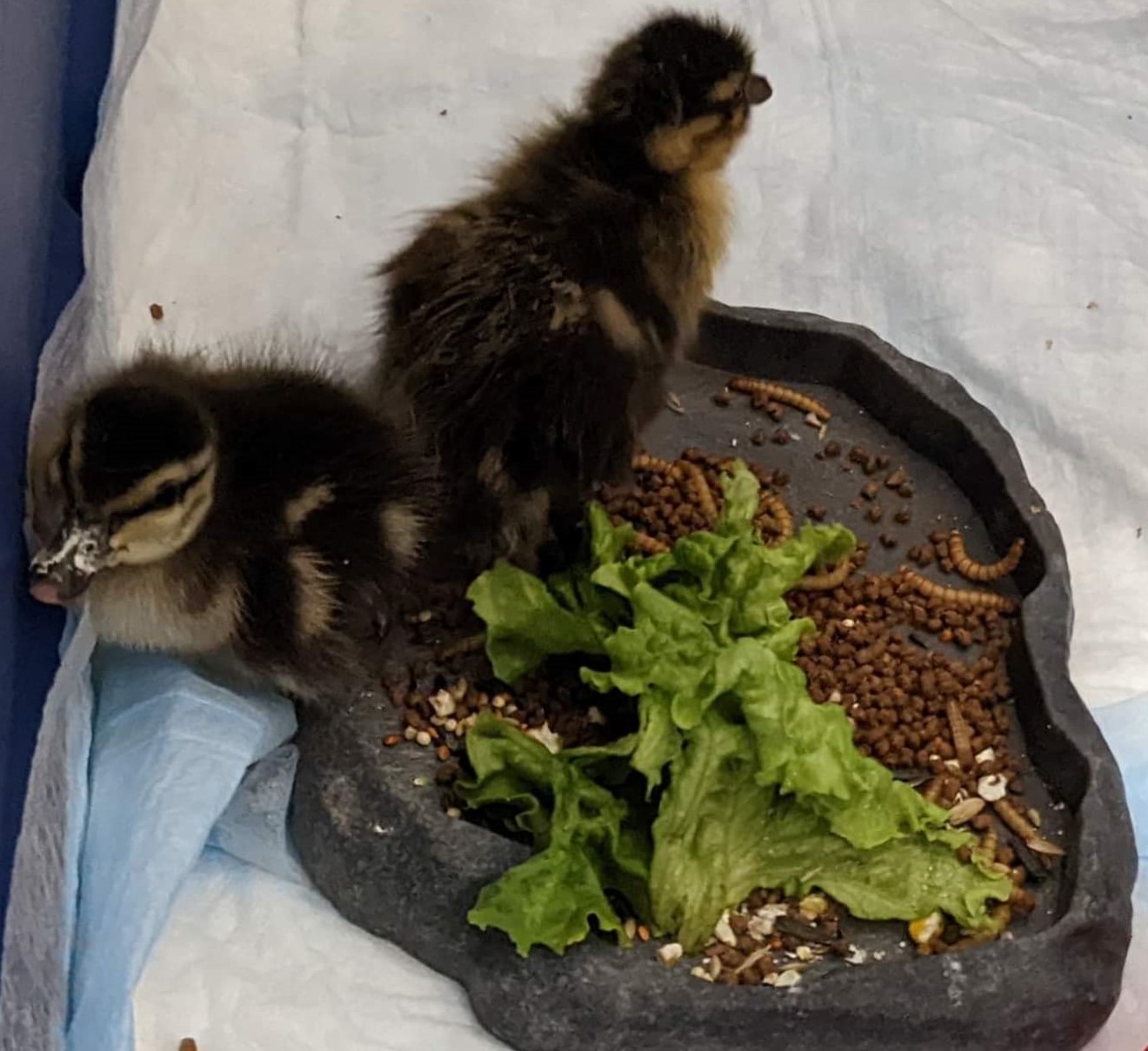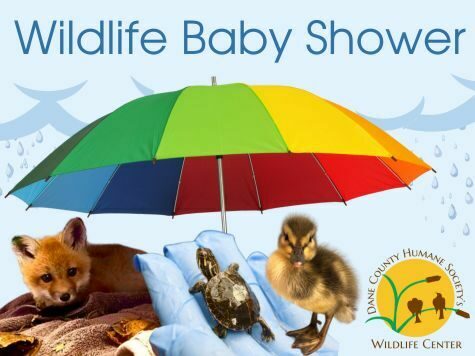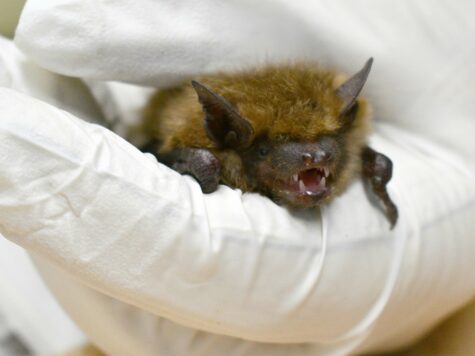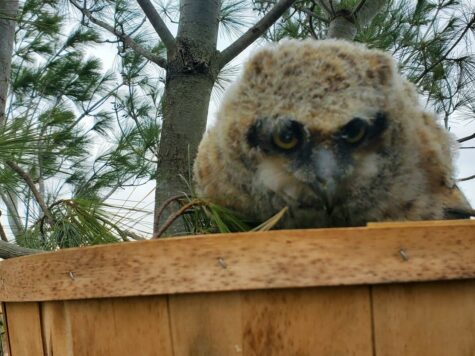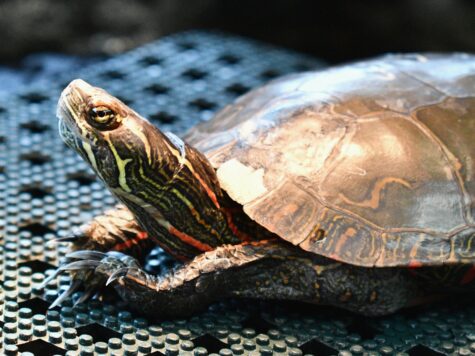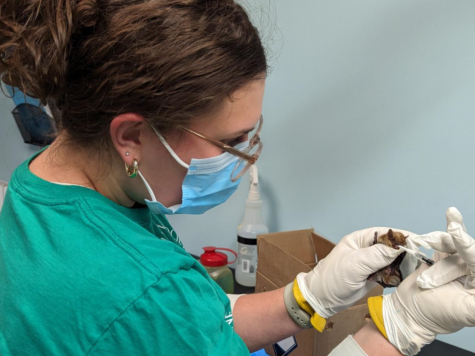In a typical year, Dane County Humane Society (DCHS)’s Wildlife Center provides care to thousands of waterfowl, waterbirds, raptors, and avian scavengers. But 2022 has been anything but typical when it comes to birds. That’s because of the spread of highly pathogenic avian influenza (HPAI).
HPAI is a viral disease that emerged on the East Coast in January 2022 and has caused mass mortality to both wild and domestic birds.
“According to active research, this current strain of HPAI has shown to be over 90% fatal for domestic poultry within 48 hours and severely lowers survival in most raptors, avian scavengers, and waterbirds,” says Jackie Sandberg, Wildlife Program Manager at DCHS’s Wildlife Center.
“Eagles have been hard hit in many states, with HPAI causing reduced reproductive success and a high number of adults or eaglets dying,” she adds. “This may be a direct result of the virus or from leaving orphaned chicks to starve without the care of their parents who passed away.”
In addition to eagles, several other types of birds are at high risk for contracting HPAI: adult waterfowl such as ducks, geese, and swans; waterbirds such as loons, grebes, coots, pelicans, shorebirds, and wading birds like egrets, herons, and cranes; raptors, especially bald eagles; and avian scavengers such as crows, ravens, and gulls.
To complicate matters, this is the season when DCHS’s Wildlife Center typically admits and cares for hundreds of ducklings that were orphaned. In fact, we admitted the first duckling of the season – a mallard – on May 11 and have since admitted over 40 more ducklings.
And HPAI is zoonotic, meaning it could spread to humans that come into close contact with HPAI-positive birds.
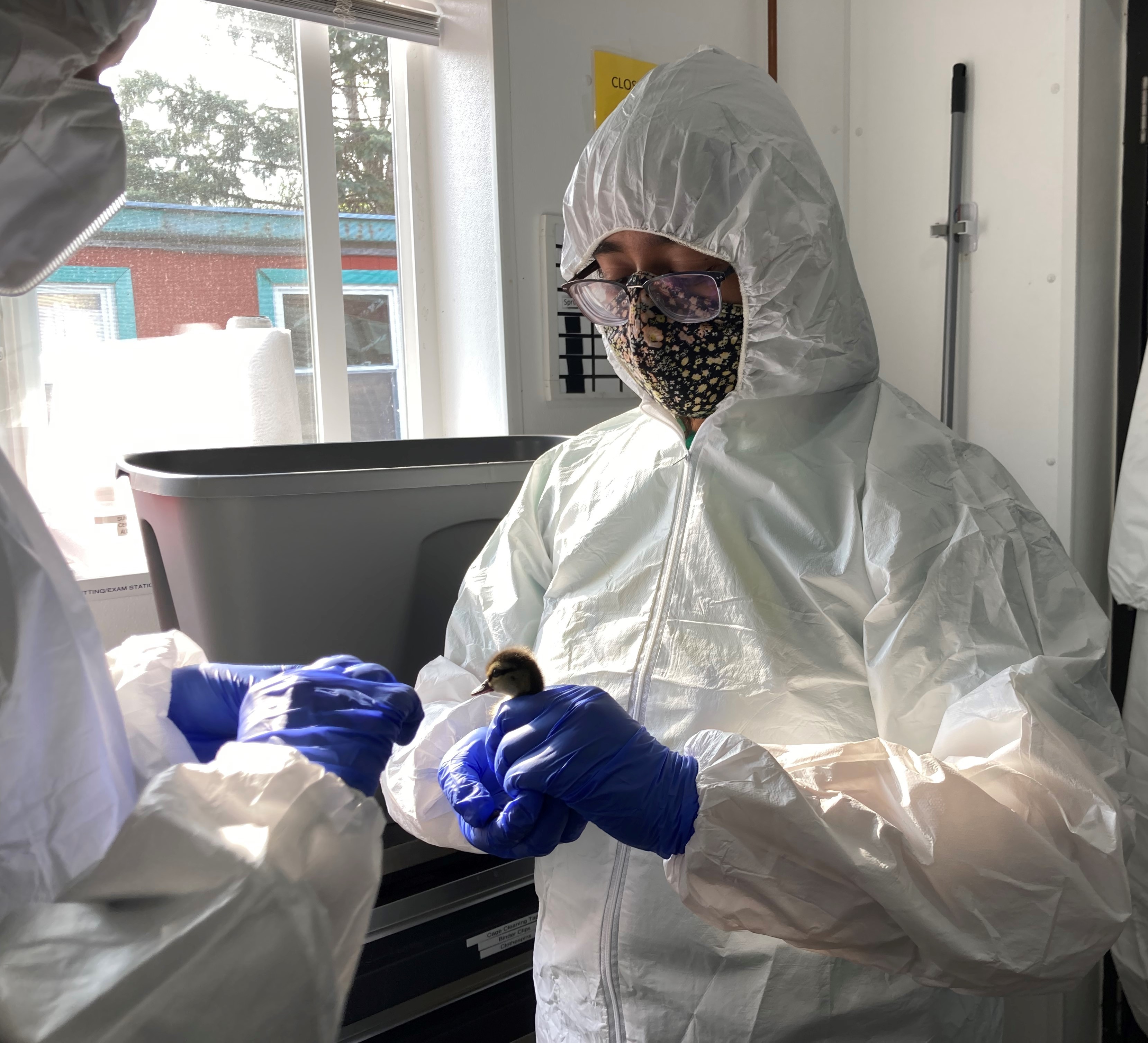
Staff monitored the spread of HPAI through various states for months. When it was identified in Wisconsin, we made the decision to protect DCHS’s Wildlife Center’s current patients, staff, interns, and volunteers by halting admissions of those high-risk species for rehabilitation.
“The CDC (U.S. Centers for Disease Control and Prevention) suggests that current risk to the general public from bird flu viruses is low; however, it is important to remember that the risk depends on exposure, and people with more exposure might have a greater risk of infection,” says Jackie.
But Wildlife Center staff felt we could continue to care for ducklings as long as they followed strict biosecurity measures involving quarantine, testing, and use of additional personal protective equipment (PPE). This wasn’t a difficult decision to make based on safety, but the bigger question was cost. How could we afford this extra necessity when the care and treatment of wild animals was already so high?
DCHS’s Wildlife Center receives no federal or state funding and there’s no fee for bringing in an animal. The program relies on community supporters to fund operations.
“Funding to be able to test birds that come into the facility, using a sterile swab and purchased test kit materials, is critical for being able to maintain strict biosecurity and protect the livelihood of all wild patients in rehabilitation,” Jackie says. “In addition, knowing a positive or negative result helps rehabilitators and veterinarians to know how to proceed with treatment options for each animal, such as quarantine, or at worst, humane euthanasia.”
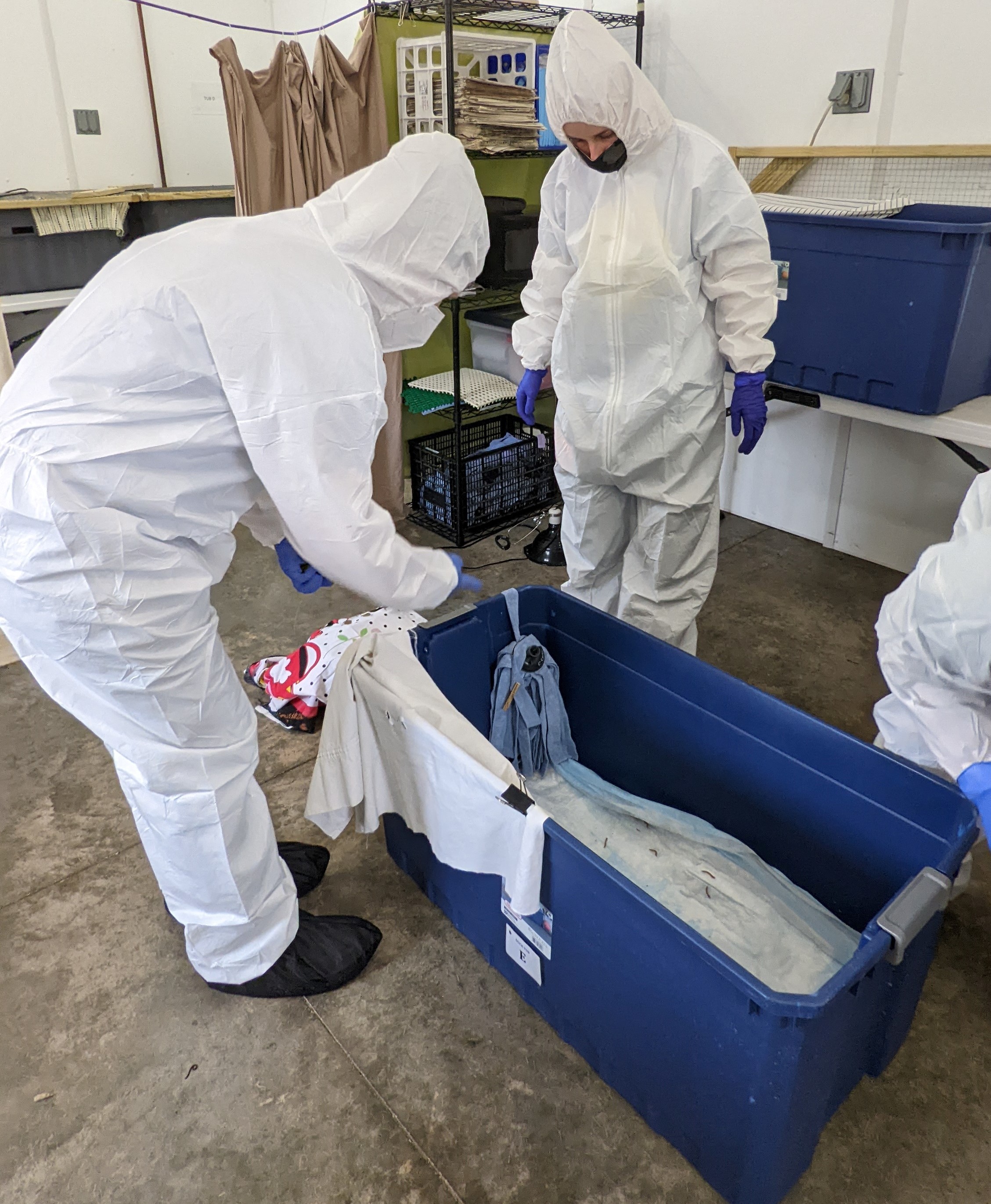
While $10 per day per PPE outfit – reusable (washable) or disposable gowns, Tyvek body suits, shoe covers (booties), exam gloves, kN95 masks, and face shields – may not seem like much, the cost adds up quickly. There are as many as six staff members per day needing PPE to care for the ducklings. Then, there’s the cost of cleaning supplies, and the fact that some of these prices are higher than what they had been before HPAI started. Finally, there’s the ability to test animals – at $47 per test – to check for HPAI.
“HPAI causes similar symptoms to other diseases. Eagles could come in ataxic (with loss of bodily movements) or seizing due to lead toxicity, Wisconsin river virus, physical trauma, rodenticide or pesticide poisoning, and more,” says Jackie. “We want to rule out HPAI to avoid unnecessary and increased euthanasia for such a highly protected, revered, and culturally important bird.”
The tests also helped to detect HPAI in fox kits. Recall that HPAI is zoonotic – it can spread to other species, and it’s now confirmed that the disease has moved to other hosts. DCHS’s Wildlife Center has received more calls about sick fox kits this year than in non-HPAI years, and multiple fox kits have tested positive for HPAI. Officials suspect that the spread occurred after fox parents fed their kits HPAI-positive birds. Three fox kits are currently in rehabilitation at DCHS's Wildlife Center, two of which tested positive for HPAI and recovered, and will be housed in care through the later fall months.
While the hope is that HPAI will decline over time, there is a possibility this deadly virus could become the new normal.
DCHS recently appealed to our community to for help raise funds for our Wildlife Center to cover the costs of PPE, HPAI tests, quarantine housing supplies, and additional sanitation items to keep staff and patients safe. This campaign is ongoing throughout the 2022 outbreak, so if you would like to contribute to the effort, click here.
If a member of the public finds a sick bird, they can report it to the Wisconsin DNR Wildlife Hotline by emailing DNRWildlifeSwitchboard@wi.gov or by leaving a voicemail at (608) 267-0866.
What is avian influenza?
What are the symptoms of HPAI?
How does HPAI spread?
Are my pets safe from HPAI?
